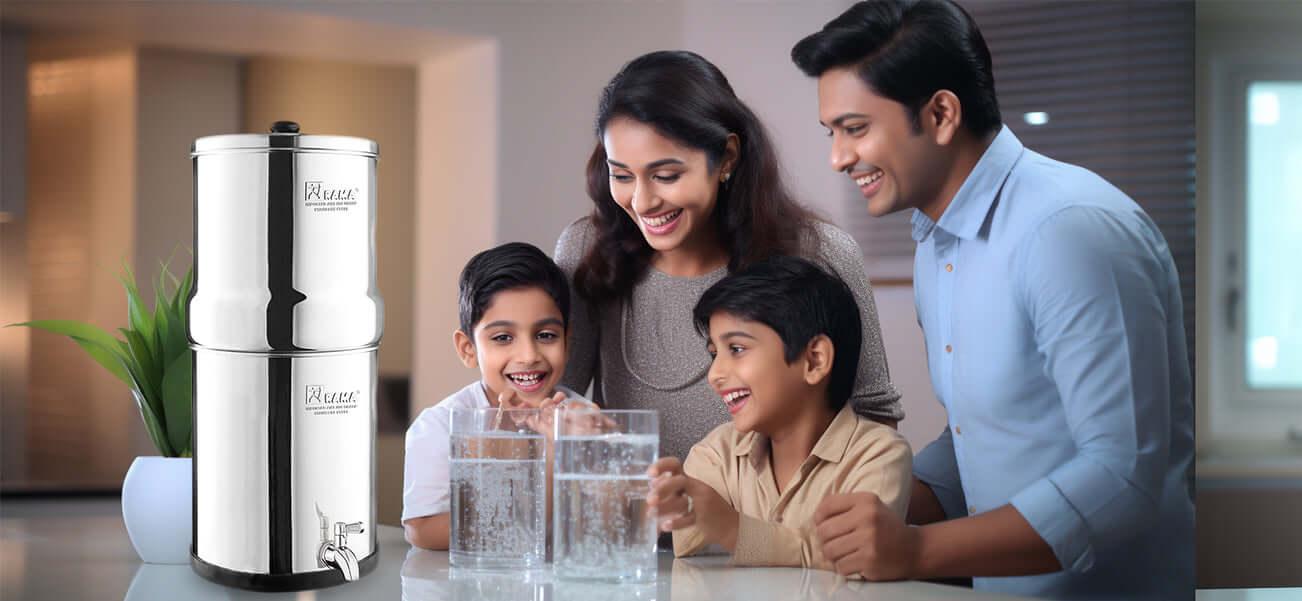
Gravity Water Filters: A Safe and Affordable Way to Clean Your Drinking Water
Water is essential for the life of humans and other living creatures. Excluding fat, water makes up about 70% of the human body by mass. Water plays a significant role in metabolism and acts as a solvent to dissolve solutes. The Environmental Protection Agency previously reported that the average American drank 2.0 litres of water a day, but now reports that intake varies by age.
In large parts of the world, humans do not have enough drinking water. In many countries, drinking this type of contaminated water causes ill health and death. Developing countries aim to provide clean drinking water to the people and thereby safeguard public health. RO water is sold for public consumption as drinking water in many places.
Water is a basic human need and right, but recently water has been commercialized and sold in cans. The sale of canned water has been expanding recently as the general public believes that it is a healthier one. In many places, the commonly available water is stored and sold.
In general drinking water can be contaminated by various sources, such as bacteria, viruses, parasites, chemicals, metals, or radioactive substances. Water quality can vary depending on the source, distribution, and storage of the water.
Every person needs to have access to clean and safe drinking water in order to stay healthy. Unfortunately, many of our water sources are not safe. This article will discuss the importance of drinking water safety and provide tips on how to ensure it.
Drinking water safety is important for human health and well-being. Drinking water standards are set by BIS authorities to ensure that the water is safe for consumption and meets certain criteria for taste, odor, colour, and clarity. Drinking water testing is a way to monitor the quality and safety of the water and identify any potential problems or risks. Drinking water filtration is a process that removes or reduces contaminants from the water and improves its quality and safety. Drinking water disinfection is a common method that kills or inactivates harmful microorganisms in the water using chemicals or physical methods. Drinking water protection is a collective responsibility that involves individuals, communities, industries, and governments. Drinking water conservation is a way to reduce water waste and preserve the availability and quality of the water for future generations.
Here are some tips to help ensure that your drinking water is safe:
Check your water source: Know where your water is coming from and whether it is treated. If you get your water from a public water system, you can contact your water supplier to obtain a water quality report. If you have a private well, get it tested annually.
Test your water: If you are concerned about the safety of your drinking water, you can have it tested. You can purchase a water test kit or contact a certified laboratory.
Install a water filtration system: A water filtration system can remove contaminants from your drinking water. There are many types of filtration systems available, such as gravity water filter systems etc..,
Store your water properly: If you store water for emergencies, make sure it is stored in a clean, airtight container in a cool, dark place.
Use safe water practices: Avoid drinking water from sources that may be contaminated, such as rivers, lakes, or streams. Also, make sure to wash your hands before handling water, and properly clean any containers used for water storage or transport.
Remember, the safety of your drinking water is important to your health, so take the necessary precautions to ensure that it is safe to drink.


